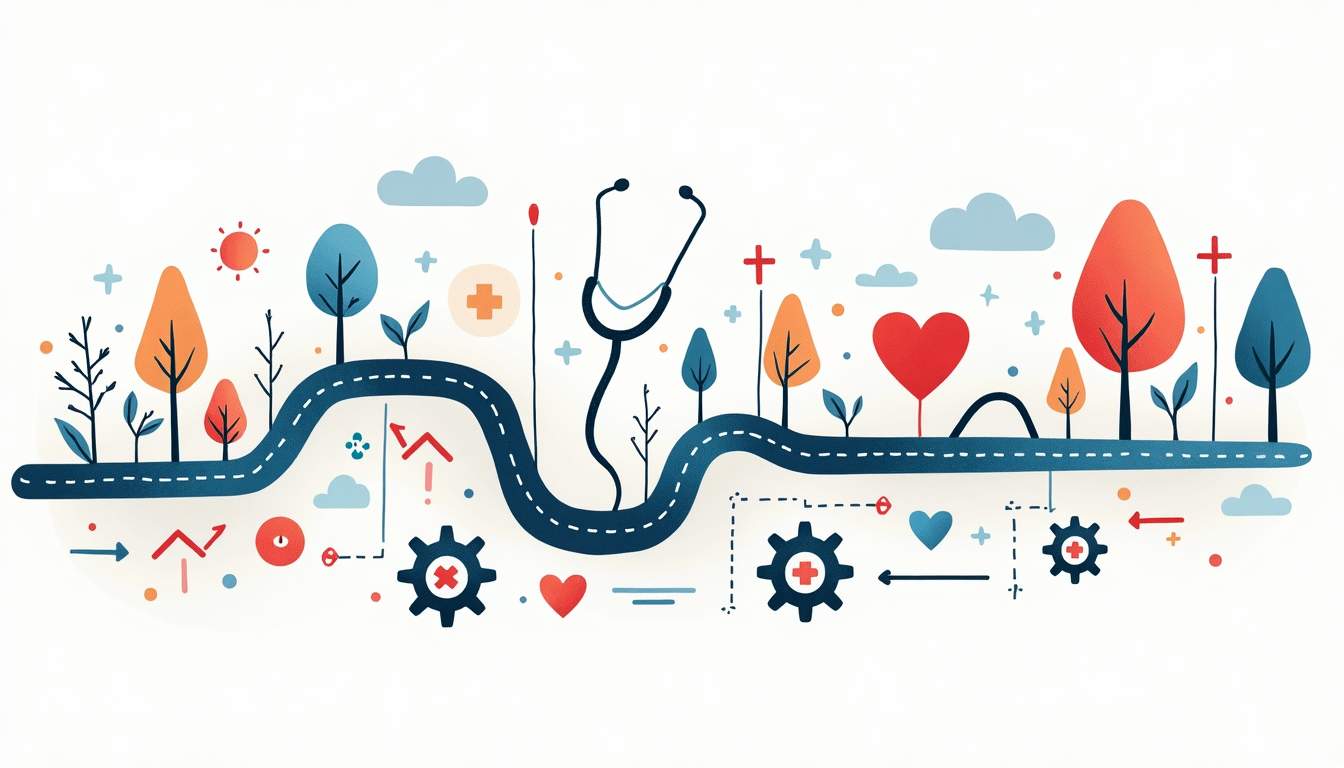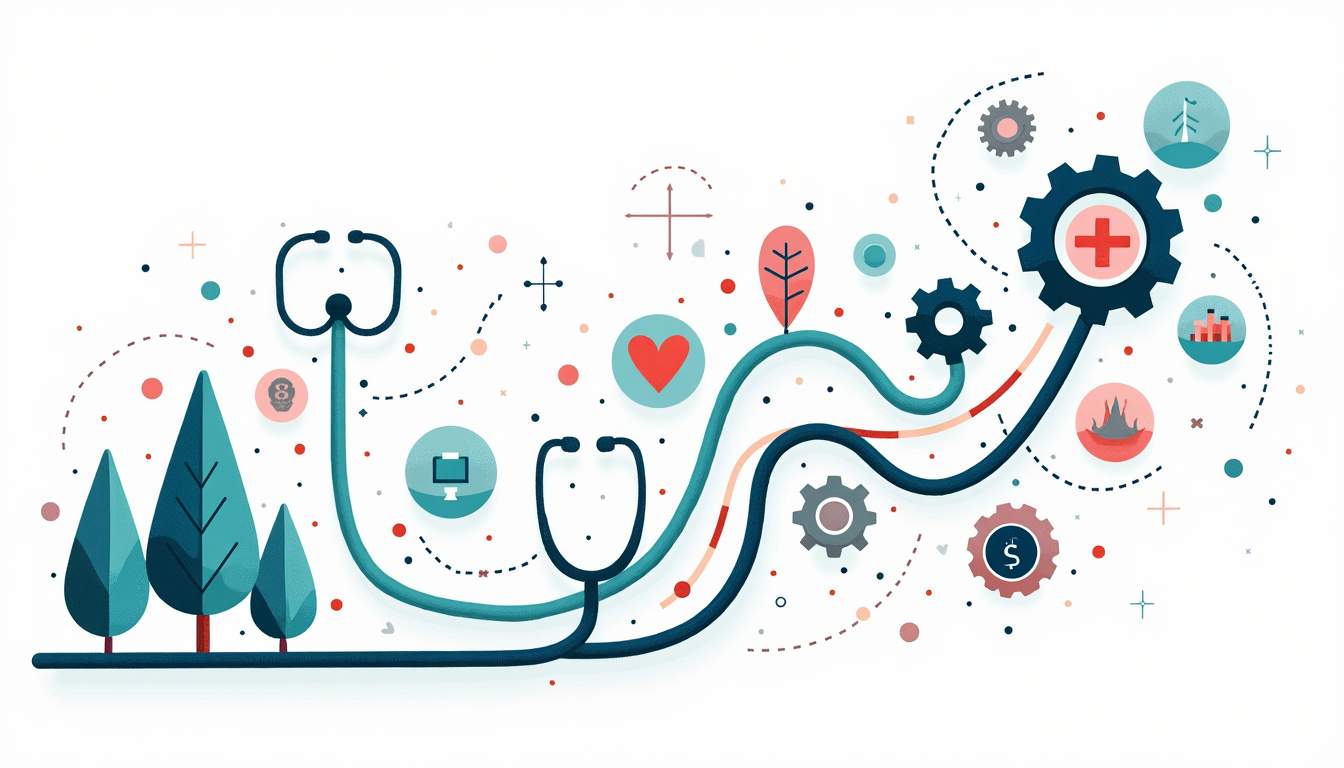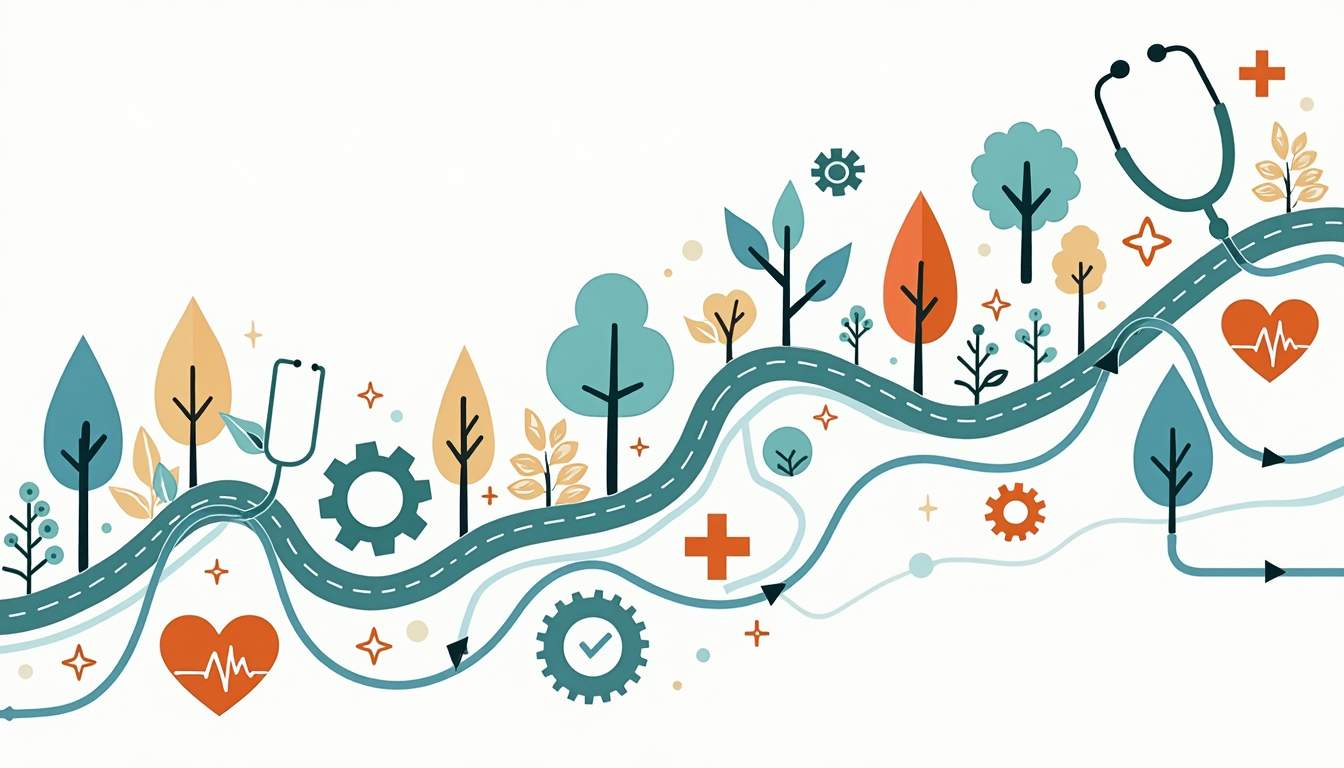
In today’s fast-paced world, taking control of your health is more important than ever. Healthcare planning is the cornerstone of ensuring not only your current wellness but also your future well-being. By proactively managing your health, understanding your options, and preparing for unexpected medical needs, you can safeguard your quality of life and reduce stress for yourself and your loved ones.
Understanding Healthcare Planning
Healthcare planning is the process of organizing and preparing for your medical needs both now and in the future. It goes beyond simply visiting the doctor when you feel unwell; it involves a comprehensive approach that includes preventive care, financial preparation, and making informed decisions about treatments and care options.

At its core, healthcare planning is about empowerment. It gives individuals the tools and knowledge to make choices that align with their values, health goals, and financial situation. This proactive approach can help avoid crises, minimize medical expenses, and ensure that your wishes are respected even if you are unable to communicate them yourself.
The Importance of Early Planning
Many people delay thinking about their healthcare until a serious illness or emergency arises. However, waiting can lead to rushed decisions, increased costs, and emotional distress. Early healthcare planning allows you to establish a clear path forward, identify potential risks, and create strategies to address them.
For example, setting up advance directives or a living will ensures that your healthcare preferences are known and followed. Similarly, reviewing and choosing appropriate insurance coverage ahead of time can prevent unexpected financial burdens. Early planning also provides peace of mind, knowing that you have taken steps to protect yourself and your family.
Moreover, healthcare planning can significantly enhance the quality of care you receive. By discussing your health history and preferences with your healthcare providers, you can foster a collaborative relationship that prioritizes your needs. This dialogue can lead to personalized treatment plans that consider not just your medical condition but also your lifestyle and values. Additionally, being proactive about your health can open doors to preventive services, such as screenings and vaccinations, which can catch potential issues before they become serious health problems. For expert guidance on managing your health and financial future, visit RetireStrong FA.
Furthermore, the landscape of healthcare is constantly evolving, with new technologies and treatment options emerging regularly. Staying informed about these changes can empower you to make better decisions regarding your care. Engaging in healthcare planning means not only preparing for what is known but also being adaptable to new information and options that may arise in the future. This adaptability can be crucial in navigating the complexities of the healthcare system, ensuring that you are always in the best position to advocate for your health and well-being.
Key Components of Healthcare Planning
Effective healthcare planning involves several critical components that work together to create a comprehensive strategy. Understanding these elements can help you build a plan tailored to your unique needs.

1. Preventive Care and Healthy Lifestyle Choices
Prevention is the foundation of good health. Regular check-ups, screenings, vaccinations, and adopting a healthy lifestyle can significantly reduce the risk of chronic diseases and complications. Eating a balanced diet, exercising regularly, managing stress, and avoiding harmful habits like smoking are vital steps in maintaining long-term wellness.
Preventive care also includes staying informed about your family medical history and discussing potential risks with your healthcare provider. This information can guide personalized recommendations and early interventions. Furthermore, engaging in community health programs or wellness workshops can enhance your knowledge and motivation to maintain a healthy lifestyle. These programs often provide resources, support groups, and expert advice that can empower you to make informed choices about your health.
2. Health Insurance and Financial Planning
Healthcare costs can be overwhelming without proper insurance coverage. Understanding your insurance options, including employer-sponsored plans, government programs like Medicare or Medicaid, and private insurance, is crucial. Each plan has different benefits, limitations, and costs, so it’s important to evaluate what fits your situation best.
In addition to insurance, setting aside savings for out-of-pocket expenses and emergencies can provide a financial safety net. Health savings accounts (HSAs) or flexible spending accounts (FSAs) are useful tools that offer tax advantages while helping manage healthcare expenses. Moreover, being proactive about understanding your medical bills and advocating for transparency in pricing can help you make more informed financial decisions. Many hospitals and clinics offer financial counseling services that can assist you in navigating your healthcare costs effectively.
3. Advance Directives and Legal Documents
Advance directives are legal documents that specify your healthcare preferences if you become unable to make decisions. These include living wills, which outline the types of medical treatment you want or don’t want, and durable powers of attorney for healthcare, which designate someone to make decisions on your behalf.
Having these documents in place ensures that your wishes are respected and reduces the burden on family members during difficult times. It’s important to review and update these documents regularly, especially after major life events such as marriage, divorce, or diagnosis of a serious illness. Additionally, discussing your wishes with your loved ones can foster understanding and support, ensuring that everyone is on the same page regarding your healthcare preferences. This open dialogue can also ease the emotional strain on family members during critical moments, allowing them to honor your choices with confidence.
4. Choosing the Right Healthcare Providers
Building a trusted relationship with healthcare providers is essential. This includes selecting primary care physicians, specialists, and other medical professionals who communicate well and understand your health goals. A strong healthcare team can provide personalized care, coordinate treatments, and support you through various health challenges.
Don’t hesitate to seek second opinions or switch providers if your needs aren’t being met. Your comfort and confidence in your healthcare team play a significant role in your overall well-being. Additionally, researching provider credentials, patient reviews, and their approach to care can help you make informed decisions. Many healthcare systems also offer patient navigators who can assist you in finding the right specialists and resources tailored to your specific health concerns, ensuring that you receive comprehensive and coordinated care throughout your healthcare journey.
Planning for Long-Term and Chronic Care
As people live longer, the likelihood of needing long-term or chronic care increases. Planning for these possibilities is a critical aspect of healthcare planning that often gets overlooked.

Understanding Long-Term Care Options
Long-term care refers to a range of services that support individuals with chronic illnesses, disabilities, or other conditions that limit their ability to perform everyday activities. This care can be provided at home, in assisted living facilities, nursing homes, or through community programs.
Knowing the types of care available and their associated costs can help you make informed decisions. Long-term care insurance is one option to consider, as it can help cover the expenses that regular health insurance or Medicare might not.
Managing Chronic Conditions Effectively
Chronic diseases such as diabetes, heart disease, and arthritis require ongoing management to maintain quality of life. Effective healthcare planning includes developing a care plan with your healthcare team, adhering to medication regimens, monitoring symptoms, and making necessary lifestyle adjustments.
Support from family, caregivers, and community resources can also play a vital role in managing chronic conditions. Planning ahead ensures that you have access to the right resources when needed.
Technology and Healthcare Planning
Advancements in technology have transformed the way people manage their health. Incorporating digital tools into your healthcare planning can enhance organization, communication, and access to information.
Utilizing Electronic Health Records
Electronic health records (EHRs) provide a centralized and secure way to store your medical history, test results, medications, and treatment plans. Many healthcare providers offer patient portals that allow you to view your records, schedule appointments, and communicate with your care team online.
Having easy access to your health information empowers you to stay informed and engaged in your care. It also facilitates coordination among different providers, reducing the risk of errors and duplication of tests.
Health Apps and Wearable Devices
There is a growing number of mobile apps and wearable devices designed to monitor various health metrics such as heart rate, physical activity, sleep patterns, and medication adherence. These tools can provide valuable insights and motivate healthier habits.
When choosing health technology, consider privacy, accuracy, and compatibility with your healthcare provider’s systems. Discussing these tools with your doctor can help integrate them effectively into your healthcare plan.
Communicating Your Healthcare Plan
One of the most important yet often neglected aspects of healthcare planning is communication. Sharing your plan with family members, caregivers, and healthcare providers ensures everyone is on the same page and can act in your best interest.
Discussing Your Wishes with Loved Ones
Open conversations about your healthcare preferences, advance directives, and long-term care plans can prevent misunderstandings and conflicts during stressful situations. It also helps family members feel prepared and supported.
Approach these discussions with honesty and empathy, and consider involving a neutral third party such as a counselor or healthcare professional if needed.
Coordinating with Healthcare Providers
Regularly updating your healthcare providers on your preferences, changes in your health status, and any new legal documents is essential. This coordination ensures that your care aligns with your goals and that providers have the information necessary to make informed decisions.
Don’t hesitate to ask questions and seek clarification about your treatment options, potential side effects, and expected outcomes. Being an active participant in your healthcare fosters better outcomes and satisfaction.
Conclusion
Healthcare planning is a vital step toward protecting your future well-being. By understanding the components of a comprehensive plan, addressing both medical and financial aspects, and communicating openly with those involved in your care, you can navigate the complexities of healthcare with confidence and clarity.
Start today by evaluating your current health status, researching your options, and taking small but meaningful steps toward a well-prepared future. Your health is your most valuable asset investing in thoughtful planning is an investment in a better quality of life for years to come.


